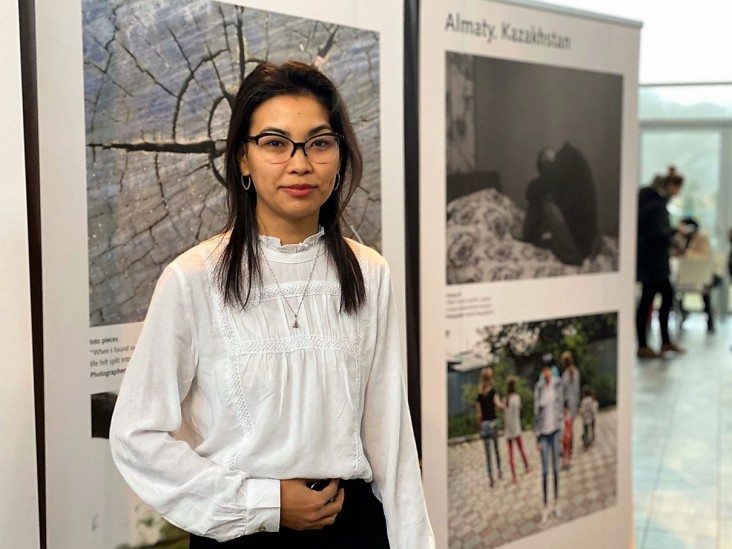Speeches Shim

USAID’s Kazakhstan Media Campaign Addresses Stigma Associated with Tuberculosis During COVID-19
When the Government of Kazakhstan declared a state of emergency on March 15, 2020 due to confirmed cases of COVID-19, many organizations, factories, and businesses suddenly had to suspend their operations. The fear of getting sick and possibly dying of COVID-19, as well as movement restrictions instituted by the government, has had a negative impact on other important public health programs.
For example, globally, movement restrictions to prevent the spread of COVID-19 are already showing signs of hampering tuberculosis (TB) diagnosis and treatment. Despite being curable, TB is the world’s deadliest infectious disease. Worldwide, approximately 1.5 million people died due to TB in 2018. A recent modeling study from the STOP TB Partnership predicts that COVID-19 lockdowns in countries with high TB burdens will reverse important progress made in the fight against TB, with the potential to set back five to eight years of progress. In a country like Kazakhstan where multidrug-resistant TB is on the rise, it is more important than ever to continue efforts to fight TB and ensure that patients have access to prevention information, diagnosis, and treatment services in these difficult times.
Despite the COVID-19-related restrictions, the USAID Eliminating Tuberculosis in Central Asia project continues activities. The project aims to reduce the burden of TB in Central Asia by ensuring that laboratory and health facility staff are well-trained in the latest prevention, diagnosis, and treatment protocols and that patients have access to TB drugs, supplies, and services.
On World TB Day on March 24, the USAID Eliminating Tuberculosis in Central Asia project launched a social media campaign to remind people that TB is a major global health concern and combat stigma.
Social media has become one of the leading tools for disseminating information, along with other traditional and online media. Engaging people through social media allows the project to work toward its goal of collaborating with communities to reduce TB stigma and to ensure successful completion of treatment. Social media users can freely express their opinions and share information with their friends.
“The goal of the campaign was to attract the attention of Kazakhstanis to the problems of TB. One of the major concerns is stigmatization of people who have experienced this infection. In the twenty-first century, a large number of people still consider TB to be something to be ashamed of, demonstrating their fear and disdain toward people affected by TB. As a result, many people avoid testing, do not want to be treated, or cancel their treatment halfway,” said Roman Dudnik, Executive Director of Public Fund AFEW Kazakhstan, a partner in the USAID Eliminate Tuberculosis in Central Asia project.
It is important for people to understand that TB is treatable. The best promoters of this idea are people who were affected by TB and have been successfully cured of it. The project announced a video contest for the stories of people affected by tuberculosis, which supported current TB patients in fighting the stigma associated with the disease.
“The selection committee nominated seven video spots and we posted one video each day on our Facebook and Instagram pages. Within three weeks, the videos cumulatively were viewed nearly 600,000 times by people from all regions of Kazakhstan. Many people also left positive and supportive comments for our heroes. No one could be left untouched by the video stories. The videos encouraged people to think about their health and show compassion,” said Roman.
“I believed in myself, in my abilities and became confident that people with tuberculosis are the same as others. We should not be silent about our experience, people should know about this disease,” Kristina, a contest finalist shared.
This digital campaign has enabled the USAID project to raise awareness of the stigma associated with TB in Kazakhstani society and to demonstrate that a large-scale media campaign can be conducted even during a pandemic. Continuing these efforts is extremely important in the current COVID-19 environment, to ensure that gains in reducing the spread of TB are not lost.

Comment
Make a general inquiry or suggest an improvement.